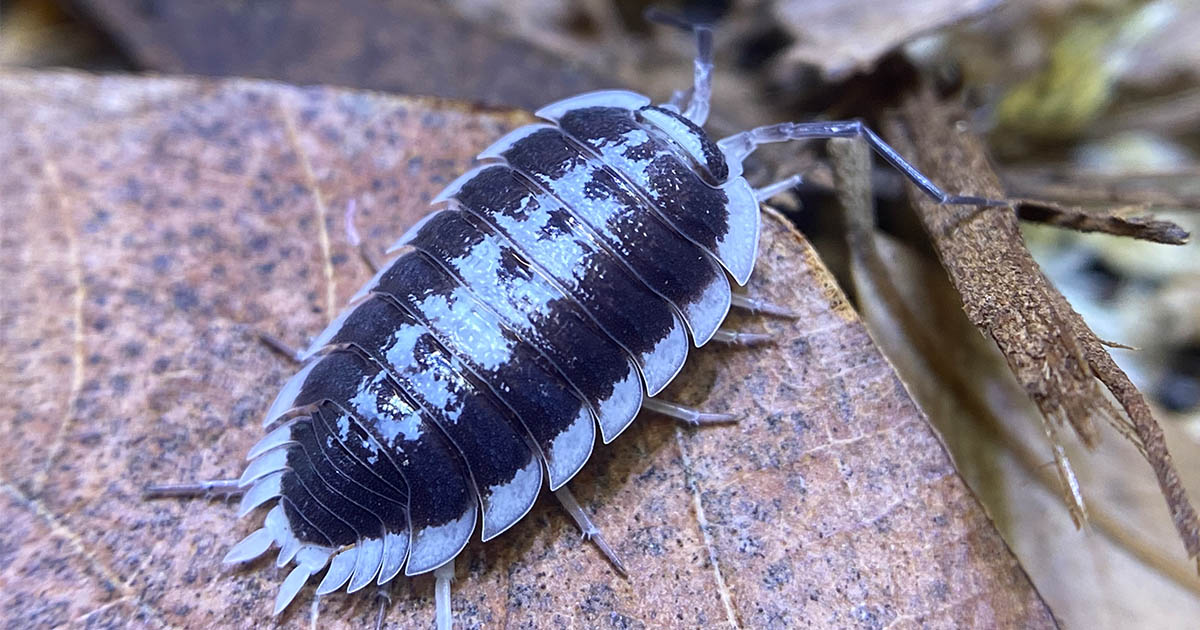Isopods, with their diverse forms and fascinating behaviors, have become a popular addition to the world of exotic pets. As more enthusiasts discover the joys of keeping these intriguing creatures, the demand for isopods for sale has surged. Among the many varieties, the Rubber Ducky isopod stands out as a favorite due to its unique appearance and charming characteristics. This blog will guide you through everything you need to know about isopods for sale, with a special focus on the Rubber Ducky isopod.
What Are Isopods?
Isopods are a type of crustacean that can be found in various environments, ranging from the deep sea to moist terrestrial habitats. These creatures are known for their segmented bodies and multiple legs, which give them a distinctive appearance. In the pet trade, terrestrial isopods, often referred to as “pill bugs” or “sow bugs,” are popular due to their low maintenance and interesting behaviors.
When looking for isopods for sale, it’s essential to understand the different species available and their specific care requirements. Isopods can vary greatly in size, color, and behavior, making it important to choose the right species that fits your interest and environment.
Why Choose Isopods as Pets?
Isopods are an excellent choice for both novice and experienced pet owners. They are relatively easy to care for, requiring minimal space and maintenance. Isopods are also fascinating to observe, as they display a variety of behaviors such as burrowing, scavenging, and social interactions within their colonies.
For those interested in bioactive terrariums, isopods play a crucial role. They help break down organic matter, keeping the environment clean and balanced. This makes them a popular choice among reptile and amphibian enthusiasts who want to create a self-sustaining ecosystem within their enclosures.
The Allure of Rubber Ducky Isopods
Among the numerous isopods for sale, the Rubber Ducky isopod has captured the hearts of many. Named for their resemblance to rubber ducky toys, these isopods are characterized by their yellowish body and distinctive “face” markings that make them look like tiny ducklings. This unique appearance has made the Rubber Ducky isopod a sought-after species in the isopod community.
Rubber Ducky isopods are native to Thailand, where they inhabit limestone caves and thrive in humid environments. Their natural habitat is rich in leaf litter and decaying wood, providing them with plenty of food and hiding spots. When kept in captivity, it’s important to mimic these conditions to ensure the health and well-being of your Rubber Ducky isopods.
Finding the Right Isopods for Sale
When searching for isopods for sale, it’s crucial to purchase from reputable breeders or suppliers who can guarantee the health and authenticity of the species. There are several factors to consider when selecting the right isopods for your collection:
- Species Variety: Different isopod species have different care requirements and appearances. Whether you’re looking for a basic species like the Armadillidium vulgare or a rare one like the Rubber Ducky isopod, make sure to research each species thoroughly.
- Habitat Needs: Consider the environmental conditions you can provide. Some isopods prefer humid, warm environments, while others thrive in cooler, drier conditions.
- Population Dynamics: Isopods are social creatures that often do well in groups. When buying isopods, ensure you’re purchasing a healthy, balanced group to promote natural behaviors.
- Health and Breeding: Look for active isopods with no visible signs of illness or injury. If you’re interested in breeding isopods, inquire about the breeding potential of the species you’re purchasing.
Caring for Rubber Ducky Isopods
Rubber Ducky isopods require specific care to thrive in captivity. Here are some essential tips for keeping your rubber ducky isopods healthy and happy:
- Enclosure Setup: Rubber Ducky isopods need a well-ventilated enclosure with plenty of moisture. A terrarium with a substrate of coco fiber, leaf litter, and decaying wood works well. The enclosure should have ample hiding spots, such as bark pieces and rocks.
- Humidity and Temperature: Maintain a humidity level of around 70-80% and a temperature range of 70-75°F. Mist the enclosure regularly to keep the environment moist, but avoid waterlogging the substrate.
- Diet: Rubber Ducky isopods are detritivores, meaning they feed on decaying organic matter. Provide them with a diet of leaf litter, decaying wood, and occasional vegetable scraps. It’s also beneficial to add calcium sources, such as cuttlebone, to their diet to support healthy exoskeleton development.
- Breeding: Rubber Ducky isopods are slow breeders compared to other species. If you’re interested in breeding them, ensure you have a stable environment and avoid frequent disturbances to their habitat. Providing a well-balanced diet and maintaining proper humidity will encourage breeding behavior.
Why Rubber Ducky Isopods Are Special
The Rubber Ducky isopod is not just another isopod; it’s a symbol of the diversity and beauty found in the world of invertebrates. Their unique appearance and rarity make them a prized addition to any isopod collection. Whether you’re an experienced isopod keeper or a newcomer, the Rubber Ducky isopod offers a delightful and rewarding experience.
Final Thoughts on Isopods for Sale
Exploring the world of isopods opens up a fascinating realm of nature’s smallest creatures. From the common pill bug to the exotic Rubber Ducky isopod, there’s a species for every enthusiast. When searching for isopods for sale, always prioritize the well-being of the animals by choosing reputable sellers and ensuring you can meet their specific care needs.
Isopods like the Rubber Ducky not only make interesting pets but also contribute to a deeper understanding of the intricate ecosystems these tiny creatures inhabit. Whether you’re building a bioactive terrarium or simply enjoying the unique charm of isopods, these little critters have a big impact.
By taking the time to learn about the different species and their care requirements, you can find the perfect isopods for sale that will thrive in your care. The Rubber Ducky isopod, with its captivating appearance and gentle nature, is a testament to the wonders that lie within the world of isopods.



